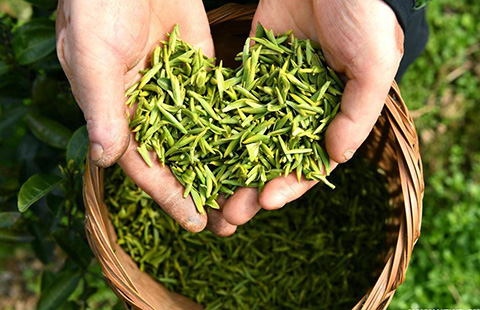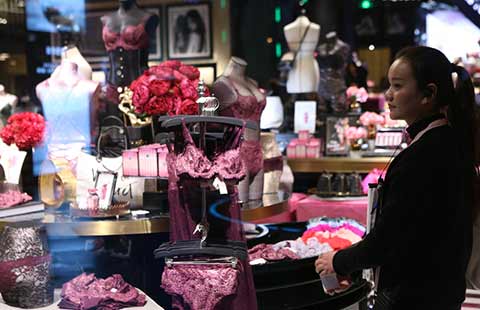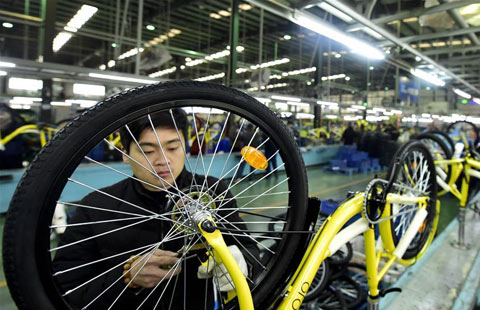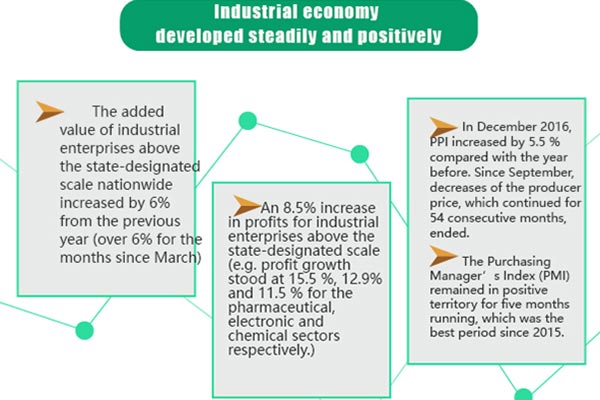$17b trade target 'to be met soon'
China, New Zealand to strengthen industry ties, with dairy as key sector
The 2015 annual trade target between China and New Zealand, at NZ$20 billion ($17.24 billion), will be realized at least one year earlier, with officials from both countries emphasizing mutual investment in various industries, but most notably dairy.
Speaking at the inaugural New Zealand-China Partnership Forum on Friday, Vice-Premier Wang Yang said the southern hemisphere nation had become China's "stable supplier of agricultural and animal husbandry products".
|
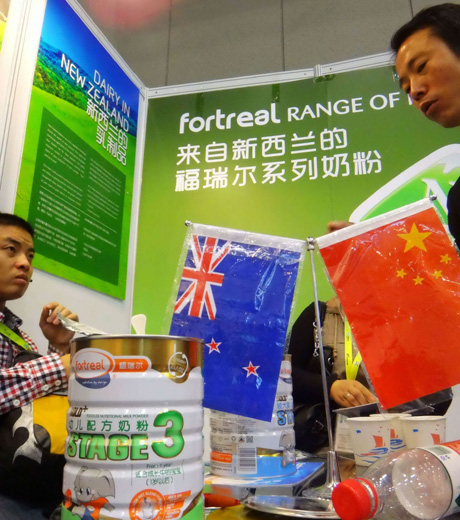 |
|
Baby formula produced in New Zealand on display at a trade fair in Beijing in October. New Zealand has become a major source of China's imports of dairy products. [Photo/China Daily] |
He added the two countries had great potential for cooperating in mechanical and electrical products, animal husbandry, environmental protection technology and bio-medicine.
"Enterprises from both countries can seek new cooperation models and jointly explore third markets," he said.
Bilateral trade has increased from $4.4 billion in 2008 to $9.7 billion in 2012, representing annual growth of 22 percent over the five years.
China has become New Zealand's second-largest trading partner, its second-largest export destination and its biggest import source, according to the Ministry of Commerce.
This year marks the fifth anniversary of the China-New Zealand free-trade agreement, China's first FTA.
The pact has played an important role in strengthening two-way economic ties and in resisting the impact of the global financial crisis, while actively boosting free-trade development in the Asia-Pacific region, Wang said.
New Zealand's Prime Minister John Key told the forum his country is "open for business, and we want to do business with China".
He added: "My government launched its New Zealand-China strategy last year with a strong trade and economic focus.
"In the years ahead, New Zealand's relationship with China will grow stronger as we build mutual prosperity and well-being."
Wei Jianguo, vice-chairman and secretary-general of the China Center for International Economic Exchanges, said that "the trade goal (of NZ$20 billion) will probably be achieved this year, or by the end of next year at the latest", in view of the growth in trade in recent years.
He added: "Our mutual investments are not enough, and we may set investment goals for the next few years, alongside bilateral trade growth."
New Zealand made investments worth $119 million in China in 2012, a rise of 60.2 percent year-on-year, bringing its total investment in the country to $1.24 billion.
There was $78.84 million worth of Chinese investment made in New Zealand in 2012, bringing the cumulative value to $343 million, according to the National Development and Reform Commission, China's top economic planning agency.
"Mutual investment is picking up momentum," said Zhang Xiaoqiang, deputy head of the commission.
"China's industrialization and urbanization drives, its progress at information and agricultural modernization will unleash huge demand for investment and consumption, providing strong support for China-New Zealand investment cooperation."
He said he expected demand for high-quality dairy products from New Zealand to continue, along with other lifestyle products the country is famous for.
Zhang Jianqiu, executive president of the dairy giant, Inner Mongolia Yili Industrial Group Co Ltd, said: "New Zealand has become the top destination for Chinese dairy enterprises, and we will have a win-win result by combining China's advantages of capital and market with New Zealand's technology."
In late 2012, the group announced it was investing 1.1 billion yuan ($177.65 million) in a New Zealand-based infant formula manufacturing plant with annual output of 47,000 metric tons, which is expected to be fully operational by June 2014.




